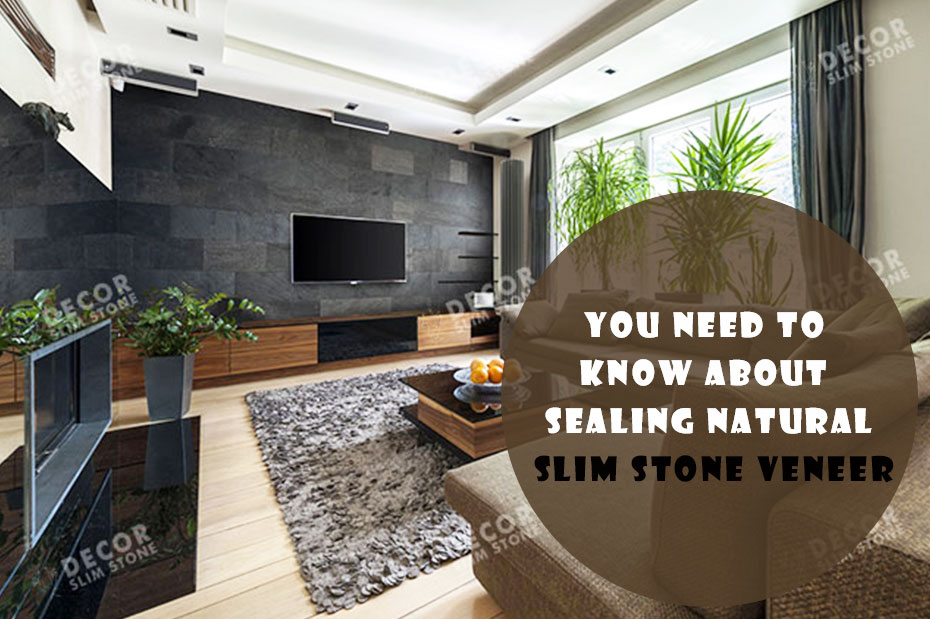All That You Need to Know About Sealing Natural Slim Stone Veneers
Slim stone veneers are one of the most durable and versatile building materials. They last for years to come without showing any signs of wear and tear. Despite this, there are several occasions where you may have to seal your flexible stone veneer walls and other applications.
Whether your stone veneers require sealing or not depends on several factors like – location (interior vs. exterior), the type of stone and so on. Sometimes, home interior designers seal natural stone veneers to create a specific desired visual effect.
Most sealers used in the market are penetrating, meaning they soak into the stone and form a protective barrier that helps to prevent your natural stone veneers from deterioration. Here, in today’s post, let’s take a closer look at the reasons why you may need to seal certain types of slim stone veneers and how to apply the sealer.
When to Seal Flexible Slim Stone Veneers?
1. Exterior Applications
If you are using thin stone veneers on exterior applications that are in or around water, then you need to seal the stone before installation. For instance, if you have a water fountain made with decor slim stone veneers, then the sealer acts as a protective barrier and protects the natural stone from water corrosion over time.
2. Type of Stone
If you are using soft natural stones like travertine or limestone, then sealing the stone veneer protects it from staining. Alternatively, stone veneers made from natural stones like slate are high in iron content, and sealing prevents the formation of rust on the surface of the stone.
If you aren’t sure, whether the slim stone veneer you have purchased requires sealing or not, don’t hesitate to get in touch with our stone experts here at Decor Slim Stone Veneers. Our friendly sales experts will provide you with the right guidance.
And, remember sealing doesn’t harm the stone’s texture, even if the material doesn’t require it.
3. Aesthetic Purposes
Apart from the protective element of the sealer, sealing slim stone veneers can also be used to add certain visual effects to your stone veneer applications. For instance, colour enhancing sealers help to darken and highlight the colour of natural stone, while high gloss sealers add a reflective sheen to the stone’s surface.
Before you use sealers for aesthetic purposes, we recommend that you try out the sealer on a sample piece, and proceed if you like the effect.
How to Choose the Right Sealer for your Decor Slim Stone Veneer Applications?
There are several stone sealers available in the market. The two major classifications of sealers are:
- Water-based sealer and oil-based sealer
- Penetrating sealers and topical sealers
Make sure to consult your stone veneer manufacturer to choose the right type of sealer that works for your application.
How to Apply Sealers on Thin Stone Veneers?
The simplest and most effective way to apply a sealer is using a hand-held pump sprayer. This tool is easily available in all hardware or garden stores. It comes with an adjustable tip that lets you spray a wider pattern.
One tip to keep in mind while applying sealers is to – wait between coats. Make sure that the first coat is completely dry, and has soaked in before making another pass. If you see the sealer stagnating on the surface of the stone, without penetrating it, then you need to use a clean cloth and wipe it off. This is crucial, or you may be left with uneven streaks.
You may have to reapply the sealer from time to time. Make sure to check the manufacturer’s instructions for application frequency.
Wrapping Up
Sealing your decor slim stone veneer applications is an easy and inexpensive way to enhance and protect your stones for a longer time to come. Here, at Decor Slim stone, we are always happy to share our expertise in thin stone veneers and answer any questions you may have. Get in touch with us, to find all that you need to know about thin stone veneers.



